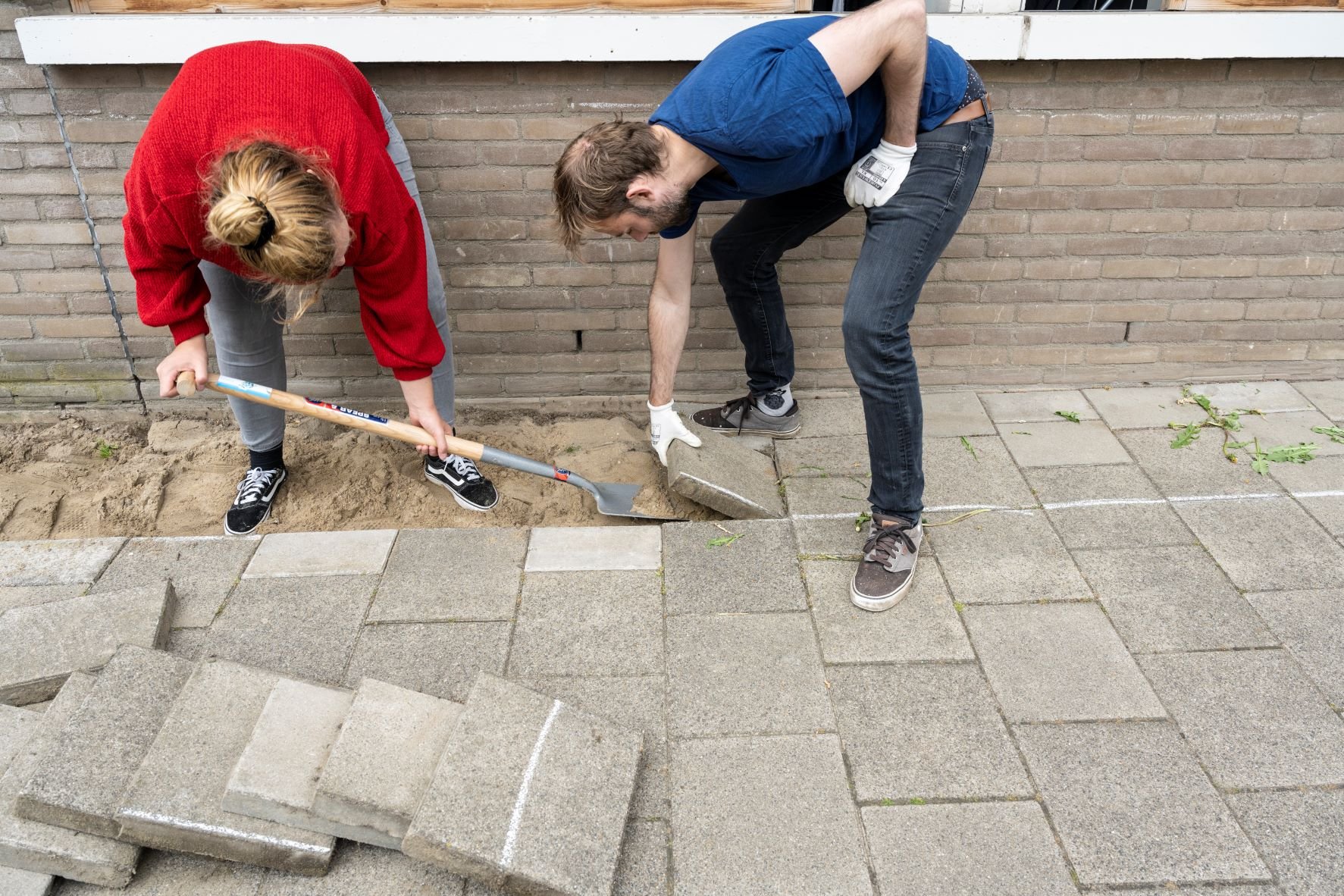Details about how the instrument was designed:
The National Championship ‘Tile-tipping’ was created in 2020 by the campaign bureau 'Frank Lee', in cooperation with the collective 'Dus Wat Gaan Wij Doen?'. The annual competition is supported by the National Ministry of Infrastructure and Water Management and ‘Ons Water’.
Targeted actors:
Private: household, real estate developer, business , financial
Details about the implementation:
It is the public who takes initiative to remove tiles on their private property or in their neighborhood, and replace the tiles with plants. If their municipality has signed up for the contest (currently more than 100 municipalites have signed up), they can register the number of removed tiles online. There is also a national 'Tile Tracker' to count tiles in case the municipality is not registered. The competition works with three rankings, based on the number of inhabitants per municipality (Large = 100,000 > inhabitants; Medium = 50,000 - 100,000 inhabitants; Small = < 50,000 inhabitants). The winners of the three rankings win a Golden Shovel based on 'TPI' (number of removed tiles per 1000 inhabitants). The municipality with the most removed tiles wins the Golden Tile. Each month, a professional jury chooses the 'Tile tipper' of the month. All monthly winners have the chance to become the "Public's tile tipper" for which everyone can vote.
The National Championship ‘Tile-tipping’ is part of the collective campaign "A greener Netherlands starts in your own garden!", started by a coalition of organisations (Ministry of Infrastructure and Water management, municipalities, NGO's, umbrella organisations). This campaign will give inspiring ideas to make gardens more climate adaptive and biodiverse. In the coming two years, several activities will be organised in the context of making gardens greener. The activities will be organised by a large number of green organisations that have joined forces to activate garden owners.
How did the government support the instrument?:
Besides (co)financing, the Ministry helps to promote the championship, especially in the first phase during which municipalities are encouraged and motivated to participate in the national championship. This is done in various ways: by including the information in ministerial newsletters, by thinking along about how to put the championship on the market (e.g. by having the Minister play a role in the starting shot film). The Ministry also helps to link the championship to various other initiatives that deal with this subject.

